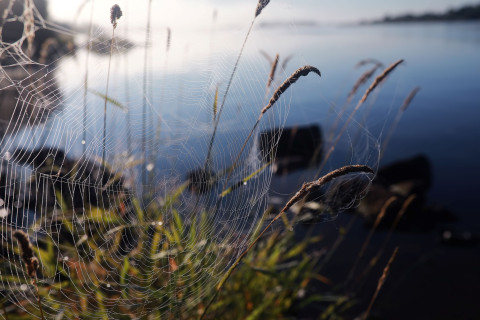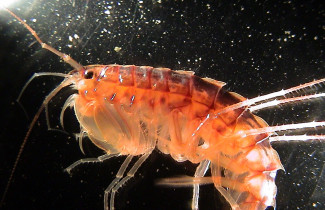The doctoral dissertation in the field of Biology and Water Ecology will be examined at the Faculty of Science, Forestry and Technology, Joensuu Campus and online.
What is the topic of your doctoral research? Why is it important to study the topic?
Aquatic ecosystems have faced tremendous changes over recent decades. In my dissertation I investigated the effects of environmental variables on freshwater macroinvertebrates. The effects of browning water were one of the main factors I wanted to investigate. I investigated how different environmental variables affected the community structure and fatty acid composition and content of freshwater macroinvertebrates. Aquatic ecosystems continue to face changes, so the effects of different variables on their biota should be known.
What are the key findings or observations of your doctoral research?
Water quality affected the freshwater macroinvertebrate community structure in both lakes and rivers. Water quality also affected the fatty acid composition of freshwater macroinvertebrates: in humic lakes the proportion of omega-3 fatty acids was smaller than in clear-water lakes. Different lake types also differed in their overall production of omega-3 fatty acids by freshwater macroinvertebrates. This was explained by differences in both freshwater macroinvertebrate community structure and their fatty acid composition. My dissertation provided new information about the effects of environmental variables on aquatic food webs.
How can the results of your doctoral research be utilised in practice?
The results of my dissertation can help understand the effects of browning of waters on biota. The results can be used to understand 1) how freshwater macroinvertebrate communities respond to the browning of waters 2) how the browning of waters affects the wood webs. The results of my dissertation indicate that water quality can influence consumers higher up the food web (e.g., fishes) so these results can be utilised in fish maintenance and restoration activities.
What are the key research methods and materials used in your doctoral research?
My dissertation utilised a national database of freshwater macroinvertebrate and water quality data and my self-collected field data. Field work included the sampling of freshwater macroinvertebrates and fish. For fatty acid analyses I conducted a chloroform-methanol extraction method. For the identification of fatty acids I utilised gas-chromatography. For the analysis of freshwater macroinvertebrate community and fatty acid data I mainly used permutational multivariate analysis of variance (PERMANOVA) and a Bayesian modeling framework, which was based on an analysis of covariance.
The doctoral dissertation of Petri Kesti, MSc, entitled The role of environmental variables on the community structure and fatty acid composition and content of freshwater macroinvertebrates will be examined at the Faculty of Science, Forestry and Technology, Joensuu Campus. The opponent will be Professor Monika Winder, Stockholm University, and the custos will be Academy Research Fellow Ursula Strandberg, University of Eastern Finland. Language of the public defence is English.
For more information, please contact:
Petri Kesti, petri.kesti@uef.fi, p. 040 591 6642




